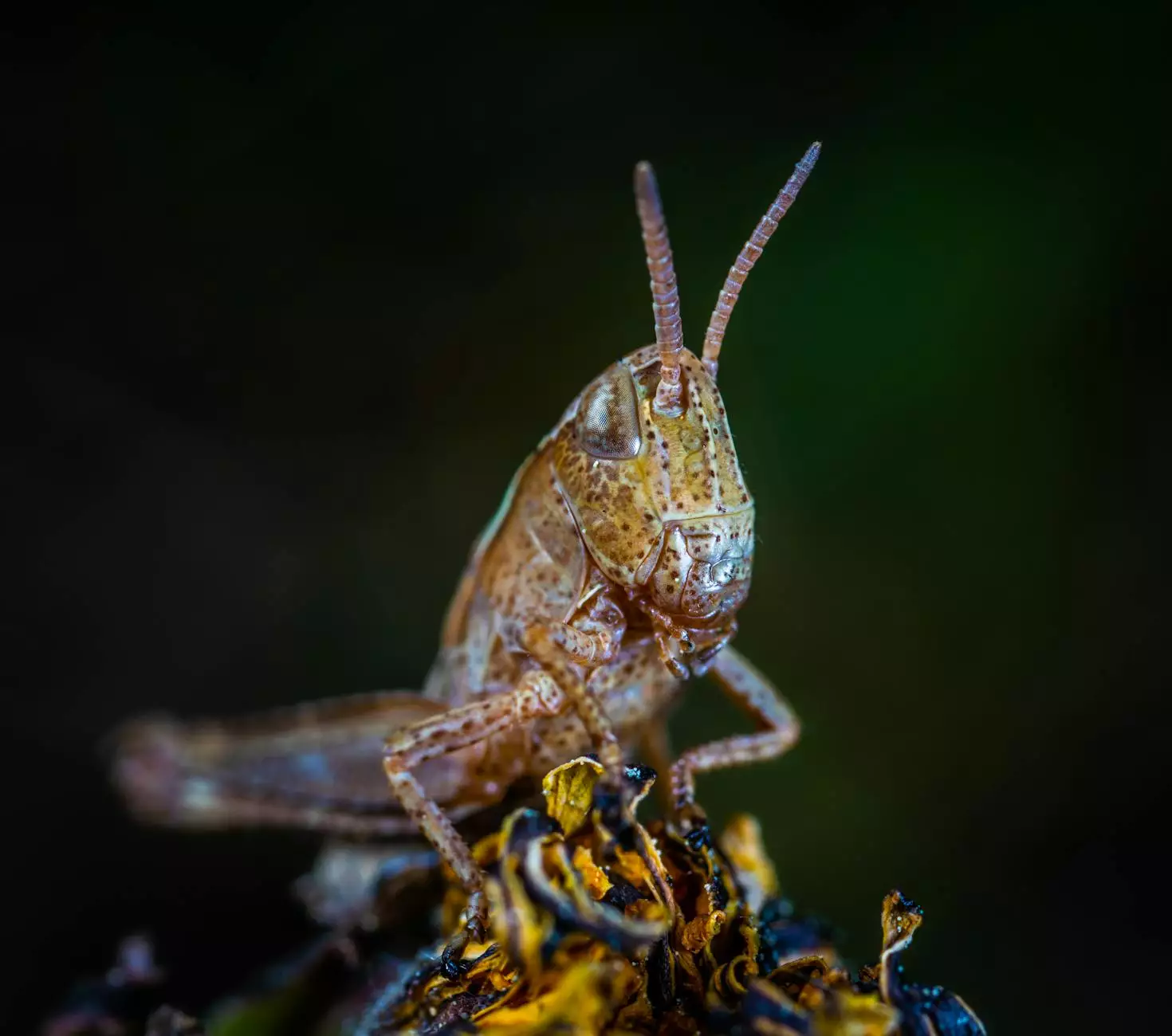Mastering **Insect Pest Management** for Agricultural Success

In the dynamic world of agriculture, insect pest management plays a pivotal role in ensuring crop health and maximizing yield. Farmers are continuously faced with the challenge of protecting their crops from various insect pests that can cause significant damage. This article will delve into the essential aspects of effective pest management, from understanding pest behavior to implementing innovative control measures that keep farms thriving.
Understanding Insect Pests and Their Impact on Agriculture
Insects are a natural part of the ecosystem, but when they invade agricultural fields, they can disrupt plant development, diminish yields, and even lead to total crop failure. Here are some critical facts about pest impact:
- Population Growth: Insects can reproduce rapidly, leading to overwhelming infestations if not managed carefully.
- Species Variety: Different insects target different crops; understanding which pests are prevalent in your area is crucial.
- Economic Loss: On average, farmers can lose up to 30% of their potential yield due to pest infestations.
- Resistance Development: Over-reliance on the same pest control methods can lead to resistance, making management increasingly difficult.
The Principles of Insect Pest Management
To effectively manage insect pests, it is essential to employ an integrated pest management (IPM) approach. This strategy combines multiple tactics to control pest populations while minimizing impact on society, the environment, and human health. The following sections explore the core principles of IPM:
1. Monitoring and Identification
The first step in insect pest management is to monitor crops regularly for signs of insect activity. Farmers should:
- Conduct field scouting to identify pest presence and damage.
- Utilize traps and visual inspections to track pest populations.
- Keep detailed records of pest sightings and treatment outcomes.
2. Preventive Measures
Prevention is the cornerstone of effective pest management. This includes:
- Crop Rotation: Changing crops seasonally helps break pest life cycles.
- Resistant Varieties: Planting pest-resistant crop varieties can mitigate damage.
- Sanitation Practices: Keeping fields clean of debris and weeds reduces breeding grounds.
3. Cultural Control
Cultural control methods, such as altering farming practices, can be effective in reducing pest populations:
- Adjust planting dates to avoid peak pest populations.
- Use mechanical devices, like row covers, to protect young plants from insects.
- Implement proper irrigation practices to prevent water-related pest issues.
4. Biological Control
Utilizing natural predators can significantly cut down on pest populations. Techniques include:
- Introducing beneficial insects, such as ladybugs and lacewings, to combat aphids.
- Using microbial pest control agents, such as Bacillus thuringiensis (Bt), to target specific pests.
- Encouraging native wildlife that prey on pests, thereby maintaining a balanced ecosystem.
5. Chemical Control
When infestations are severe, chemical control may be necessary. However, this should be done thoughtfully:
- Targeted Application: Use pesticides specifically designed for the pests you're treating to minimize collateral damage.
- Integrated Approaches: Combine pesticides with biological and cultural methods for more sustainable results.
- Rotate Chemicals: Prevent resistance by using different classes of insecticides in a strategic rotation.
Enhancing Insect Pest Management with Proper Equipment Maintenance
Farming equipment plays a vital role in effective pest management. Proper maintenance of tools and machinery not only supports efficient operation but also enhances pest control methods. Here’s how:
1. Calibration of Sprayers
Ensuring that spray equipment is properly calibrated is essential for achieving desired insect pest management outcomes. Calibration involves:
- Adjusting pressure settings to ensure even distribution of pesticides.
- Regular checks on sprayer nozzles for clogs and wear.
- Testing equipment before full application to prevent over or under-application.
2. Regular Maintenance of Equipment
Routine servicing of farming equipment, including tractors and sprayers, helps maintain efficiency and effectiveness:
- Conducting regular checks on oil levels, filters, and belts.
- Cleaning and storing equipment correctly to prevent decay and ensure longevity.
- Keeping tools organized and accessible to support quick action against pest outbreaks.
3. Investing in Technology
Innovative technologies can significantly assist in insect pest management processes. Implementing precision agriculture tools enables:
- Data Collection: Using drones and sensors to monitor pest populations and crop health from above.
- Automated Spraying: Employing robotics to target applications more efficiently and accurately.
- Smart Irrigation Systems: Reducing excess water that attracts pests through better efficiency.
Conclusion: The Future of Insect Pest Management in Farming
As agriculture continues to advance, the importance of effective insect pest management cannot be overstated. By understanding pest dynamics, employing integrated pest management strategies, and maintaining farming equipment, farmers can significantly reduce losses and promote sustainable practices.
In conclusion, insect pest management is an ongoing challenge that requires awareness, innovation, and a proactive approach. By investing in proper strategies and maintaining high-quality farming equipment, farmers will not only protect their crops but also contribute to a healthier agricultural ecosystem for future generations.
If you're looking to enhance your farming practices or need expert assistance in insect pest management, consider reaching out to businesses like tsgcinc.com that specialize in farm equipment repair and farming equipment solutions. Proper equipment maintenance is crucial to safeguarding your investments and ensuring long-term success in agriculture.









